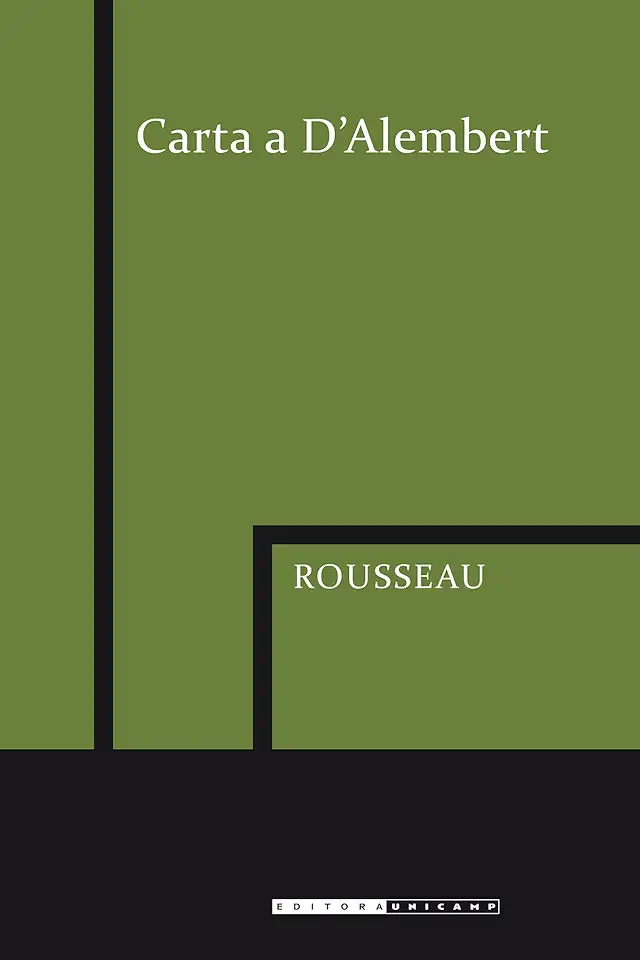
Letter to D'Alembert - Jean-Jacques Rousseau
Letter to D'Alembert on the Theatre
In his influential work, "Letter to D'Alembert on the Theatre," Jean-Jacques Rousseau presents a compelling critique of the theater and its impact on society. Rousseau argues that the theater, as it exists in contemporary society, promotes harmful values and undermines the moral fabric of the community. Through his eloquent and passionate prose, Rousseau seeks to persuade readers of the dangers of the theater and the need for its reform or even abolition.
Rousseau's Central Arguments
Rousseau's central arguments against the theater revolve around its negative influence on morality, its promotion of luxury and vanity, and its distortion of reality. He contends that the theater presents a false and idealized portrayal of life, leading to unrealistic expectations and a decline in civic virtue. Rousseau argues that the theater encourages individuals to prioritize personal pleasure and entertainment over civic responsibilities and the pursuit of the common good.
The Corrupting Influence of the Theater
Rousseau asserts that the theater corrupts individuals by exposing them to immoral and seductive content. He argues that the portrayal of vice and debauchery on stage desensitizes audiences and encourages them to indulge in similar behaviors. Rousseau also criticizes the theater for its emphasis on luxury and extravagance, which he believes fosters vanity and materialism. He contends that the theater diverts attention from genuine values and promotes a superficial and artificial lifestyle.
The Distortion of Reality
Rousseau argues that the theater distorts reality by presenting an idealized and unrealistic portrayal of life. He contends that the characters and situations depicted on stage are often far removed from the experiences of ordinary citizens. This, he argues, leads to a disconnection from reality and a decline in the ability to discern between truth and falsehood. Rousseau believes that the theater undermines the development of critical thinking and encourages a passive acceptance of whatever is presented on stage.
The Impact on Civic Virtue
Rousseau asserts that the theater undermines civic virtue by promoting individualism and self-interest. He argues that the focus on personal pleasure and entertainment in the theater detracts from the cultivation of civic responsibilities and the pursuit of the common good. Rousseau believes that the theater encourages a culture of spectatorship rather than active participation in civic life. He contends that the theater weakens the social fabric and contributes to the decline of a virtuous and cohesive society.
Rousseau's Call for Reform
In light of his critique, Rousseau calls for the reform or even abolition of the theater. He argues that the theater, in its current form, poses a significant threat to the moral well-being of society. Rousseau proposes a number of reforms, including stricter censorship of plays, the promotion of educational and moralistic theater, and the encouragement of alternative forms of entertainment that foster civic virtue and promote the common good.
Conclusion
"Letter to D'Alembert on the Theatre" is a powerful and provocative critique of the theater and its impact on society. Rousseau's eloquent and passionate arguments provide a compelling case for the need to reform or abolish the theater in its current form. While some may disagree with Rousseau's extreme views, his work remains a valuable contribution to the ongoing debate about the role and influence of the theater in society.
Enjoyed the summary? Discover all the details and take your reading to the next level — [click here to view the book on Amazon!]